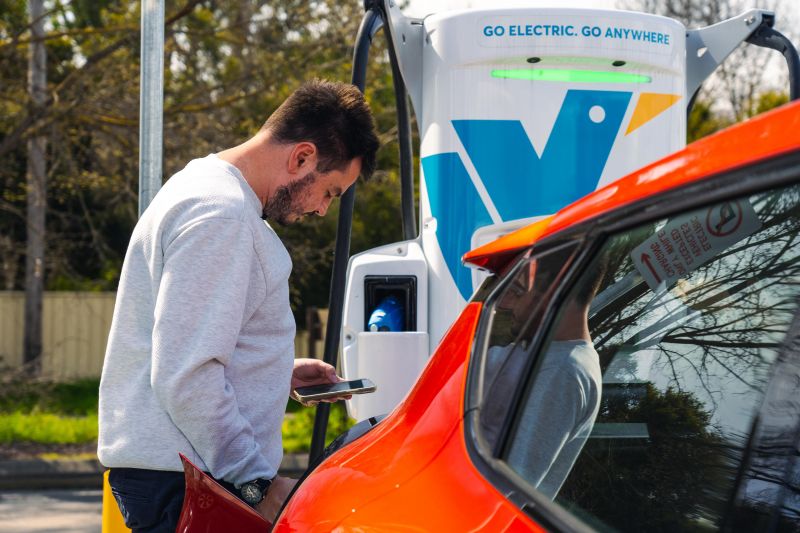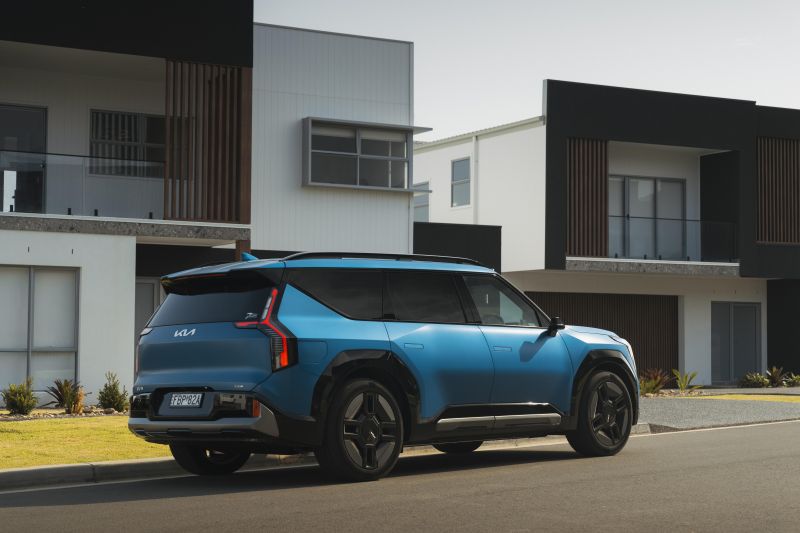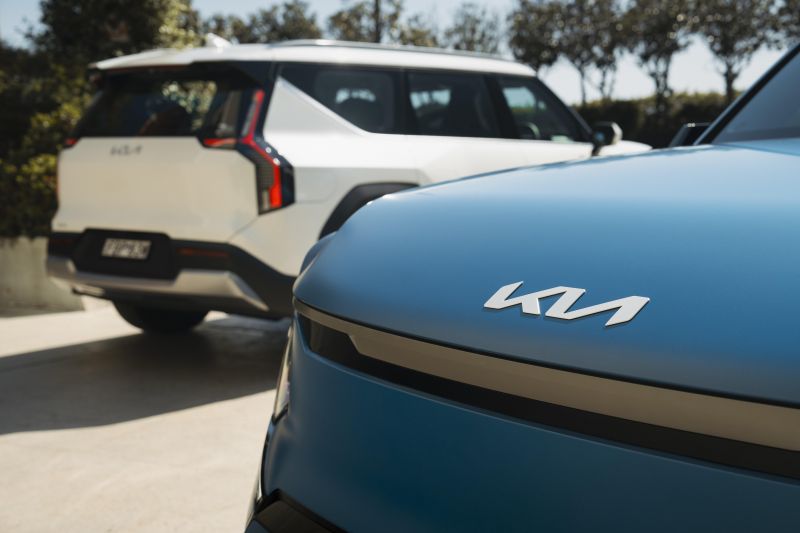Kia wants a national charging program for electric cars

[ad_1]
Kia Australia has voiced criticism about financial incentives for electric cars – but the brand does support government-backed programs to support the uptake of EVs.
Damien Meredith, CEO for Kia Australia, told CarExpert at the recent launch of the Kia EV9 he’d like to see the Australian Government establish a national charging network to avoid leaving pockets of the population behind.
“What I would like to see is a full commitment to a charging program around Australia,” Mr Meredith said, “I know there’s variables around that, but I think if we did that, it will give everyone the confidence to move forward with purchase and give them the confidence it takes.”
“[We’re] still talking to a lot of people, they’re still concerned about being caught out with EVs. That’s probably the main thing – I’d like to see a commitment to that, a national charging program.”
Mr Meredith said he believes a multi-solution approach to electrification will be key to reducing Australia’s emissions, arguing the lack of local legislative drivers will likely see “a mix of vehicles” on sale in Australia and on the road for “at least another decade”.
“I think it’s a multi-solution approach. We’ve obviously committed to Plan S which is our global electrification plan,” Mr Meredith said.
“But the reality is, the pragmatic aspects of it are that in Australia, there’s still going to be a mix of sales and a mix of vehicles on the road for I think at least another decade. My view is 2034 will probably be when we see more electric cars than what there is at this point.”
“Globally, it’s all driven by legislation. And there’s some confusion I think in Western Europe regarding what’s the best way forward. [In] Australia, I think what we need to do, obviously state governments – well the majority, apart from one – have given up on their view of rebating EV sales.”
“I think it gives the Federal Government a great opportunity now to do something with a blanket approach for the 25 million or nearly 26 million of us now. So, I hope the Federal Government takes an opportunity to put something in place.”
“[Fuel] excise is going down and that’s a huge part of the budget, so it does give the government a good opportunity to do something that’s going to have an effective output on what happens with EVs and basically, mobility.”
“For us, we’re committed to Plan S. We’re very fortunate that what’s coming in is going to be competitive in each of the five price plateaus that we’re in. But I still believe there will be a mix of sales (ICE and EV) for quite a while.”
Kia’s global Plan S strategy revolves around heavy investment into electrification, as well as a product offensive in the coming years – including 15 EV models by 2027, and 1 million annual EV sales by 2026.
That means the Korean carmaker expects EVs to account for 37 per cent of its overall sales, as it aims to produce 4.3 million vehicles overall in 2030 – a 10.3 per cent increase from the goal announced last year. Include hybrids and plug-in hybrids and Kia expects electrified vehicles will account for 2.38 million units in 2030, or 55 per cent of its volume.
It’ll also build its first dedicated EV factory in South Korea in 2024, and convert the production line of its Gwangmyeong factory for EV production with two models to start rolling off the line next year.
The company claims this plant will use innovative technologies like a “3D virtual reality process” and unmanned, automated facilities.
Read more about the company’s future plans here.
MORE: 2024 Kia EV9 review
MORE: Everything Kia
[ad_2]


